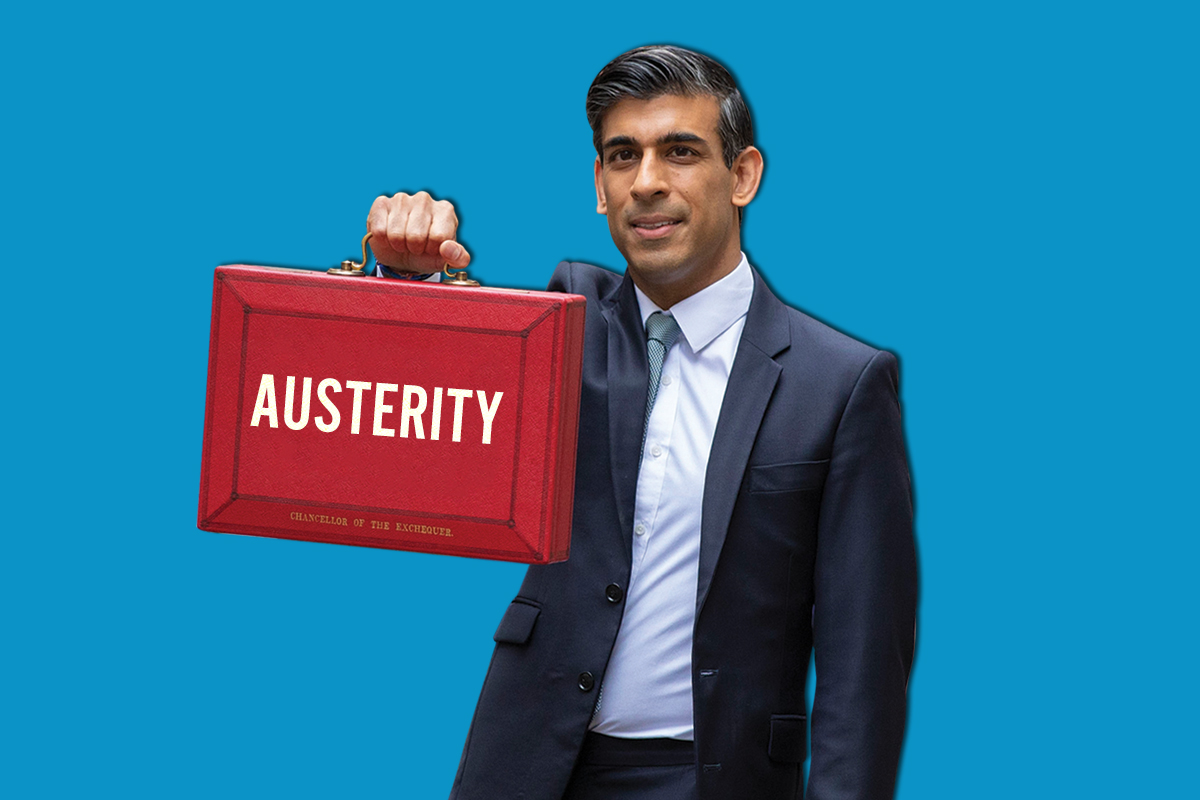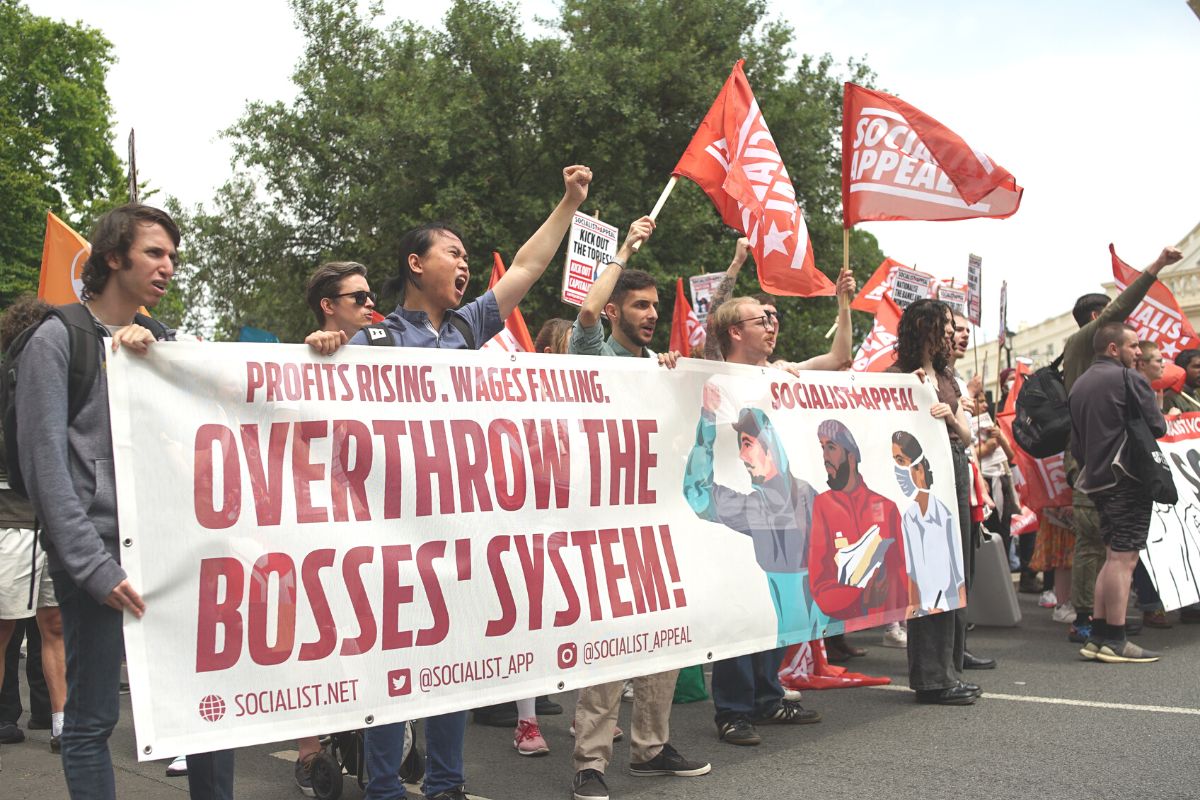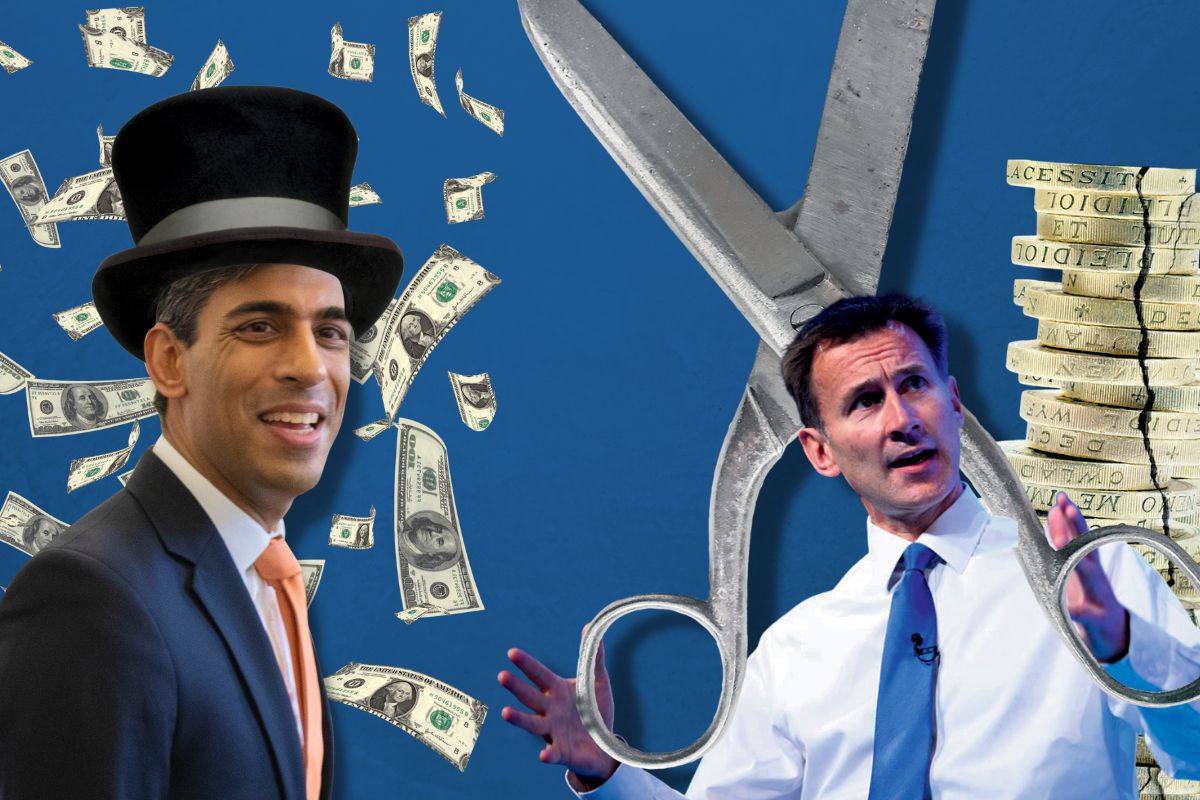After weeks of build-up, the Tories have presented their new “eye-watering” austerity budget. Given the parlous state of the government’s finances, it is even worse than originally anticipated.
“I am under no illusion that there is a tough road ahead,” asserted chancellor Jeremy Hunt, “one which will require extremely difficult decisions.”
“We all have to make sacrifices,” states our unelected prime minister, Rishi Sunak. These “sacrifices” make the last 12 years of austerity look like a tea party by comparison.
Massive cuts and tax rises are on the order of the day, amounting to £55 billion in total – equivalent to 2% of UK GDP.
They try to avoid using the word “austerity”. But a rose by any other name smells as sweet.
Dictatorship of bankers

Of course, Jeremy Hunt has tried to blame all the problems on Truss and her reckless mini-budget. In reality, the former Tory PM’s incendiary economic agenda merely revealed the underlying crisis of British capitalism.
Everything is being done to “satisfy the markets”, Sunak says – the “markets” being the billionaire investors and financiers, who use their power to dictate to governments. Whatever is good for them is deemed good for the economy.
They are demanding their pound of flesh; deep cuts to ‘balance the books’, over the backs of the poor.
“We will support the most vulnerable,” assures Sunak, a multi-millionaire. But that is rubbish. This is a government of the rich, for the rich, by the rich. They will make sure it is precisely the most vulnerable who will pay the most, through the crumbling services and higher costs.
Cuts, cuts, cuts

Around half of Hunt’s austerity agenda will come from taking an axe to public spending. But the Tories are postponing the worst cuts until after the next general election, hoping to limit the political damage.
Nevertheless, hospitals, councils, and schools are facing an immediate squeeze on funding, as inflation eats away at budgets. And with nurses, civil servants, and education workers already moving into action over pay, the government is heading for a head-on collision with the unions.
“We are going to root out waste,” states the chief secretary to the Treasury, while Hunt talks of “making efficiencies” – a euphemism for cuts and public sector sackings.
The City of London, meanwhile, will be celebrating the news that the cap on bankers bonuses is to be lifted. And chief executive pay is up by 25% on average, to its highest level in over half a decade. So much for wage restraint!
Furthermore, support for energy bills will now be scaled back in April. Meanwhile, the fossil fuel monopolies are making a bonanza.
Shell announced that its global profits hit nearly $9.5bn between July and September, more than double the amount it made in the same period last year. Consequently, the firm announced that it will be increasing its dividends to shareholders.
Living standards plummet

The British economy is already in recession; a slump, which, according to the Bank of England, is forecast to be the longest in the last 100 years.
The UK is the only G7 country whose economy shrank in the three months to September, and where GDP output remains below that achieved before the pandemic.
In fact, as part of its latest budget forecasts, the Office of Budget Responsibility (OBR) estimates that the economy will still be below its pre-COVID peak by the end of 2024, with a predicted contraction of 1.4% next year. This is estimated to push unemployment up to almost 5%.
Combined with rising inflation, borrowing costs, and joblessness, the OBR predicts that living standards will see their largest decline in over six decades, since records began, with real household disposable income plummeting by 7.1% over the next two years.
This will take ordinary people’s incomes back to their 2013-14 level. In other words, it will be a lost decade for the working class.
“I think that, as Simon Schama would say,” mused Sunak, “we have faced bigger challenges.” For sure, we had the Black Death and two world wars. But that is hardly comforting to the millions of families who are living on the edge.
Bailouts for billionaires
Government borrowing has risen sharply due to the crisis, adding to the mountain of debts accumulated as a result of repeated bailouts of the capitalist system.
Billions were poured in to rescue the banks after 2008, with billions more pumped in via quantitative easing to shore up big business. The Tories then handed out billions to bogus ‘health’ companies during the pandemic. At the same time, the rich got ‘eye-wateringly’ richer and the poor poorer.
Even with the Tories’ austerity 2.0 package, the OBR suggests that UK public borrowing will be over £80bn by 2026-27 – almost £50 billion larger than previously expected back in March. This increase is due to the extra cost of servicing government debt, alongside weak growth.
At the same time, inflation is running at over 11%, the highest in four decades; and food prices are rising much faster.
The Bank of England, as it pushes up interest rates, actually welcomes the slump, believing that this will tame inflation. What wonderful medicine unemployment is! For the working class, it is like the choice between death by hanging and death by a thousand cuts.
Grim future

The ‘economy’ is viewed by many as something external, unpredictable, and dangerous; as a constant threat hanging over us.
Gone is the reformist idea that tomorrow will be better than today. Tomorrow is going to be worse. The future is looking grim.
“With a lengthy recession looming and spending cuts on the agenda,” states the Financial Times, “the future for Britain’s peripheral class looks bleak.”
As life becomes more precarious, and the crisis bites down harder, the majority feel a burning sense of anger and pessimism.
In an interview with people in Sedgefield, for example, the northern constituency that the Tories took from Labour in 2019, people described modern-day Britain as “chaotic”, “failing”, and “uncertain”.
“People like us who work relatively regular jobs,” said one local resident, “have been put into a state of flux because we’re having to worry about what our future looks like.”
Revolutionary conclusions
Today, we have a political crisis layered on top of an economic and social crisis. This is affecting all classes. Everything is being shaken up, including the consciousness of the working class.
This is particularly the case with the younger generation, who have only known a lifetime of crises. The older generation can hark back to the past. But that is not the case with the youth. They are drawing radical – and even revolutionary – conclusions.
All that the ‘opposition’ Labour Party has to offer is talk about financial ‘responsibility’. On all important questions, Keir Starmer and Rachel Reeves are in full agreement with their Tory counterparts.
The right-wing Labour leaders are so wedded to capitalism that they are afraid to offer any real reforms. They know that if they get into power, they would do exactly the same as the Tories in bowing to the markets.
Socialist transformation

No amount of tinkering with the capitalist system will resolve the crisis. Capitalism globally is in terminal decline – and British capitalism is in a particularly dismal state. The system is already threatening to throw the working class back to the 1930s.
Only a bold socialist programme – involving the expropriation of the major monopolies, banks and insurance companies, under democratic workers’ control and management – can offer a real way forward.
Instead of being run for profits and the financial markets, a socialist economy would be planned in the interests of the majority. Only then would we be able to utilise society’s resources to do away with poverty, unemployment and homelessness.
Without this revolutionary transformation, the working class faces a “tough road” into capitalism’s abyss.






